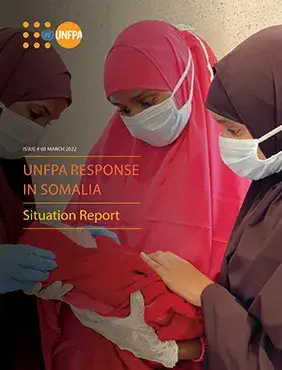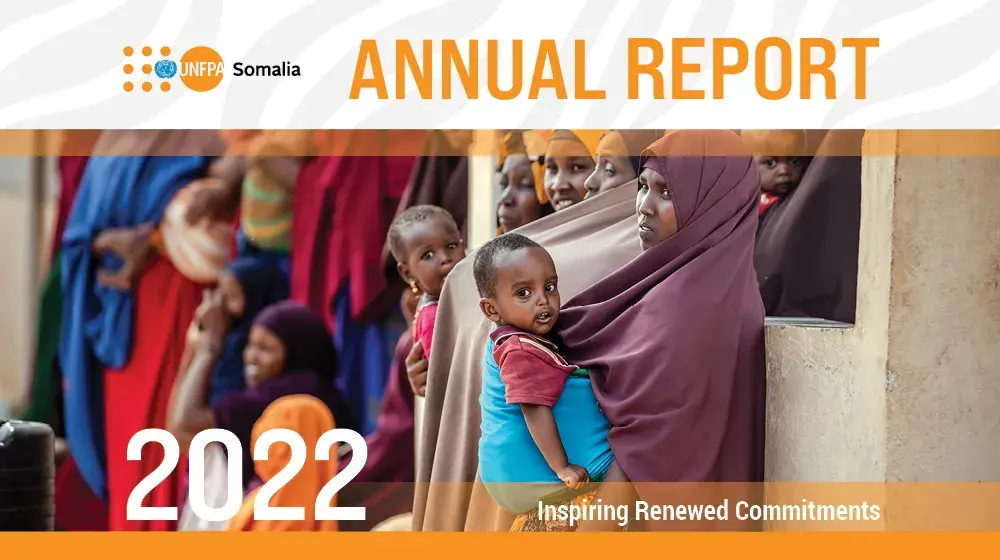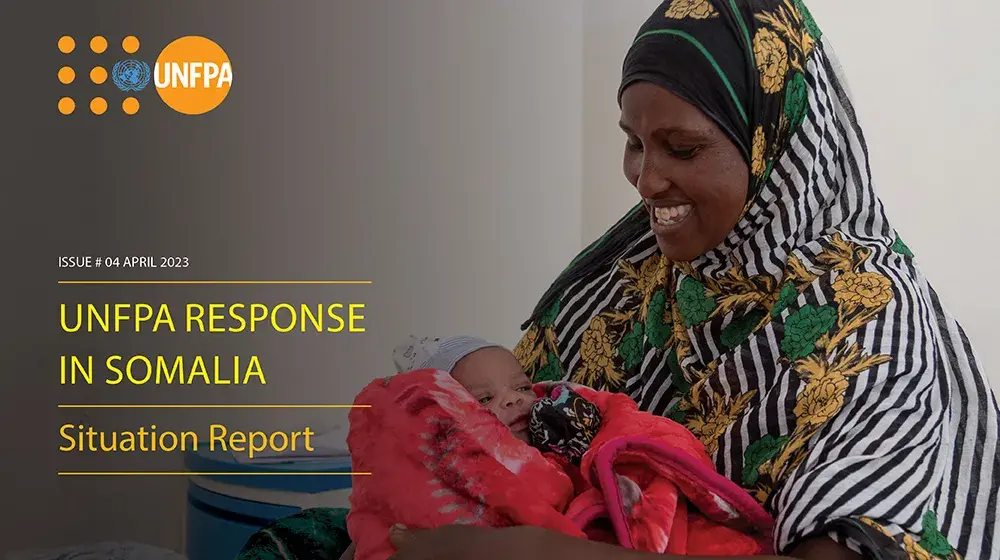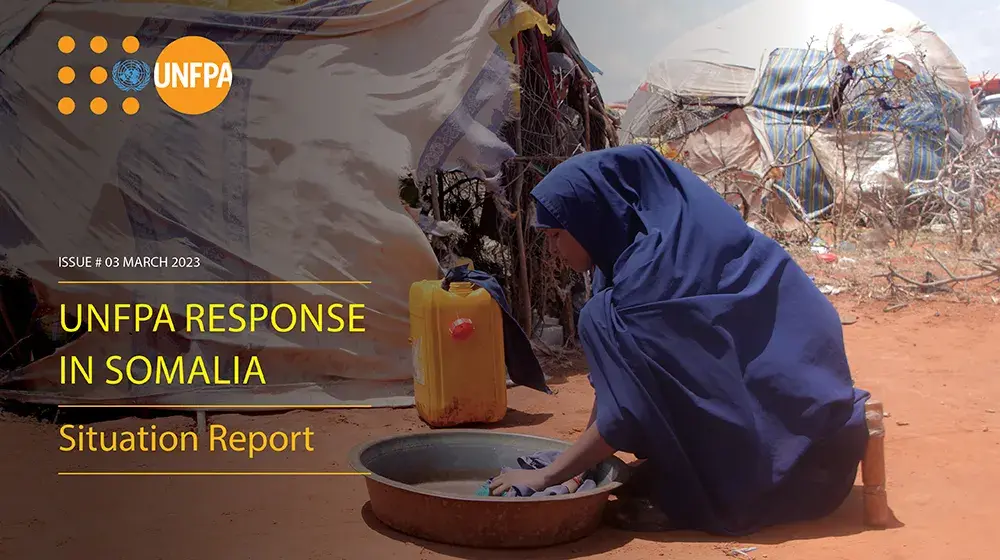The severe drought in Somalia has deteriorated the situation of women and girls. As per the recent Somalia Water and Land Information Management (SWALIM) drought monitoring, based on field reports and the Combined Drought Index (CDI), about 80 per cent of the country is facing extreme drought conditions. Water and food prices remain high and continue to increase in many areas of the country. Around 4.9 million people across the country are currently affected by the ongoing drought, resulting in the displacement of over 600,000 people. The severe negative impact of the drought on women and girls has been reported across several platforms. Currently, a total of 2.9 million people are internally displaced across the country, a majority of whom are women, girls and children.
According to a forecast by IGAD Climate Prediction and Application Center (ICPAC), issued on 28 March 2022, below average rainfall and high temperatures are expected in April in the southern parts of Somalia, as well as the Ethiopian highlands. High temperatures will lead to increased evaporation and increased demand for water among livestock, resulting in overall worsening conditions.
UNFPA Somalia prioritizes the continuity of essential and life-saving health and Gender-Based Violence (GBV) services, targeting vulnerable women and girls, Internally Displaced Persons (IDPs) and persons with disabilities. During March 2022, UNFPA and its partners reached 54,220 persons with Sexual and Reproductive Health (SRH) services and 22,655 persons with prevention and response to GBV, including Mental Health and Psychosocial Support (MHPSS) for women and girls. In addition, UNFPA reached 820 young people through youth-related activities.





